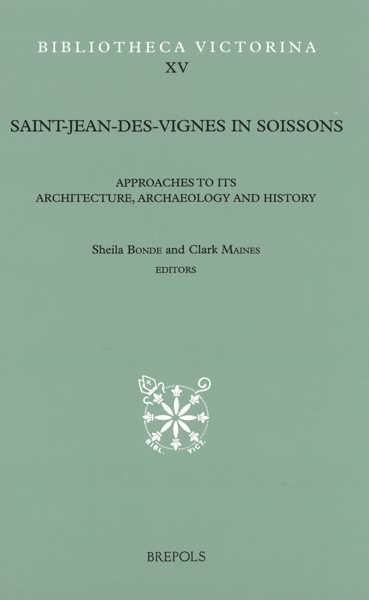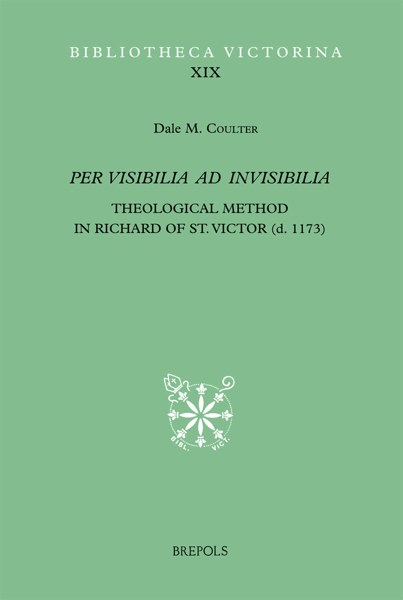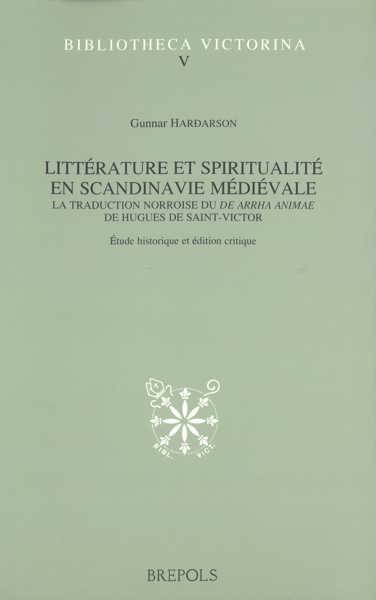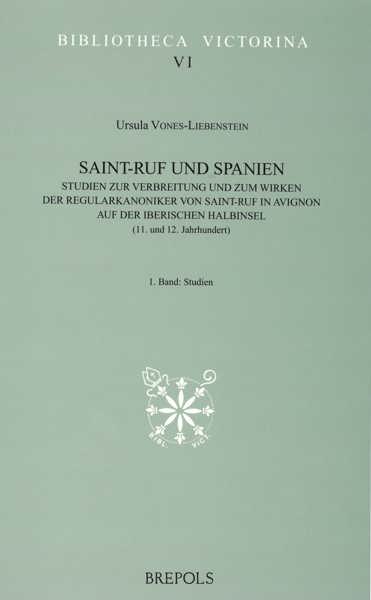
Nichil melius, nichil perfectius caritate
Richard of St. Victor's Argument for the Necessity of the Trinity
Dennis Bray
- Pages: 280 p.
- Size:178 x 254 mm
- Illustrations:2 b/w
- Language(s):English, Latin
- Publication Year:2025
- € 75,00 EXCL. VAT RETAIL PRICE
- ISBN: 978-2-503-61344-4
- Hardback
- Available
- € 75,00 EXCL. VAT RETAIL PRICE
- ISBN: 978-2-503-61345-1
- E-book
- Available
The first dedicated study on the philosophical-theological argument for the Trinity in Richard of St. Victor’s crowning work, De Trinitate.
Dennis P. Bray is Assistant Professor of Theology at Taylor University, in Upland Indiana, USA. He has published on philosophical arguments for the Trinity by major thinkers in the Christian tradition. He holds a PhD in Analytic Theology from the University of St Andrews, where he also lectured in in Systematic and Philosophical Theology.
In his magnum opus De Trinitate, the twelfth-century canon Richard of St. Victor offers sustained reflection on core dogmatic claims from the Athanasian creed. At the heart of the treatise is Richard’s argument for exactly three divine persons. Starting with the necessity of a single, maximally perfect divine substance, Richard reasons along four steps: (i) God must have maximal charity, or other-love; (ii) to be perfectly good, delightful, and glorious, God’s other-love must be shared among at least two, and (iii) among at least three, divine persons; (iv) the metaphysics of divine processions and love each ensure the impossibility of four divine persons. For Richard, Scripture and trustworthy church authorities already provide certainty in these truths of faith. Even so, as an act of ardent love, Richard contemplates the Trinity as reflected in creation. From this epistemic point of departure, he supports his conclusions from common human experience alone.
Recently, philosophers of religion have employed Richard’s trinitarian reflection as a springboard for constructive work in apologetics and ramified natural theology. His unique and meticulous approach to the Trinity has garnered attention from scholars of medieval and Victorine studies, recognizing the novelty and rigour of his philosophical theology.
This volume presents the first focused exploration of Richard’s central thesis in De Trinitate, combining historical context with philosophical scrutiny. It confronts the most challenging aspects of his argument, presenting Richard’s insights as not merely intriguing but also profoundly compelling. His thesis, if validated, promises to significantly enrich modern dialogues on the philosophical and theological dimensions of the Trinity.
Introduction
Renewed Interest in Richard of St. Victor’s Trinitarian Thought
Aims, Scope, and Objectives
Outline
1. De Trinitate: Context and Method
Introduction
Twelfth-Century Europe and the Abbey of St. Victor
Three Notes on Method in De Trinitate
Conclusion: De Trinitate Viewed Through the Contemporary Philosophy-Theology Paradigm
2. The Argument for Divine Charity
Overview
Three Components of Richard’s Metaphysics of Goodness
Exposition of The Argument for Divine Charity
Summary and Conclusion
3. The Conditions and Order of Charity
Introduction and Overview
The Conditions of Charity
The Argument Against Supreme Charity for Created Persons
Conclusion
4. Arguments for Multiple Divine Persons
Overview
The Argument for Multiple Divine Persons from Goodness
The Argument for Multiple Divine Persons from Happiness
The Argument for Multiple Divine Persons from Glory
Conclusion
5. Arguments for Three Divine Persons
Introduction: What Happened in DT 3.6-10?
The Argument for Three Divine Persons from Goodness
The Argument for Three Divine Persons from Happiness
The Argument for Three Divine Persons from Glory
Conclusion
6. Arguments for the Impossibility of Four Divine Persons
Introduction: Foundations of the Arguments Against Four or More Divine Persons
The Argument Against Four or More Divine Persons from Processions
The Argument Against Four or More Divine Persons from Love
Concluding Thoughts: AF-L’s dependence on AF-P
Conclusion
Review
Implications for Social Trinitarians
Implications for Non-Social Trinitarians
Implications for Heterodox Christian Theologies
Conclusion
Bibliography
Index




